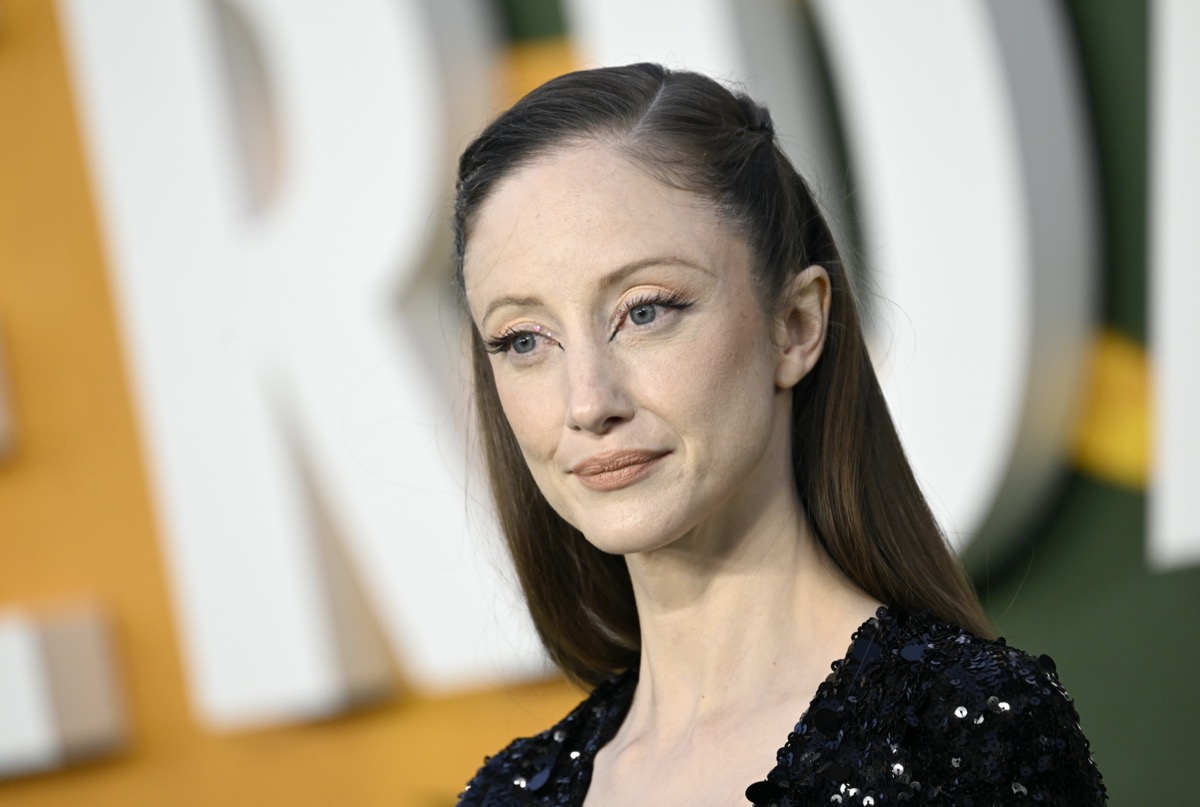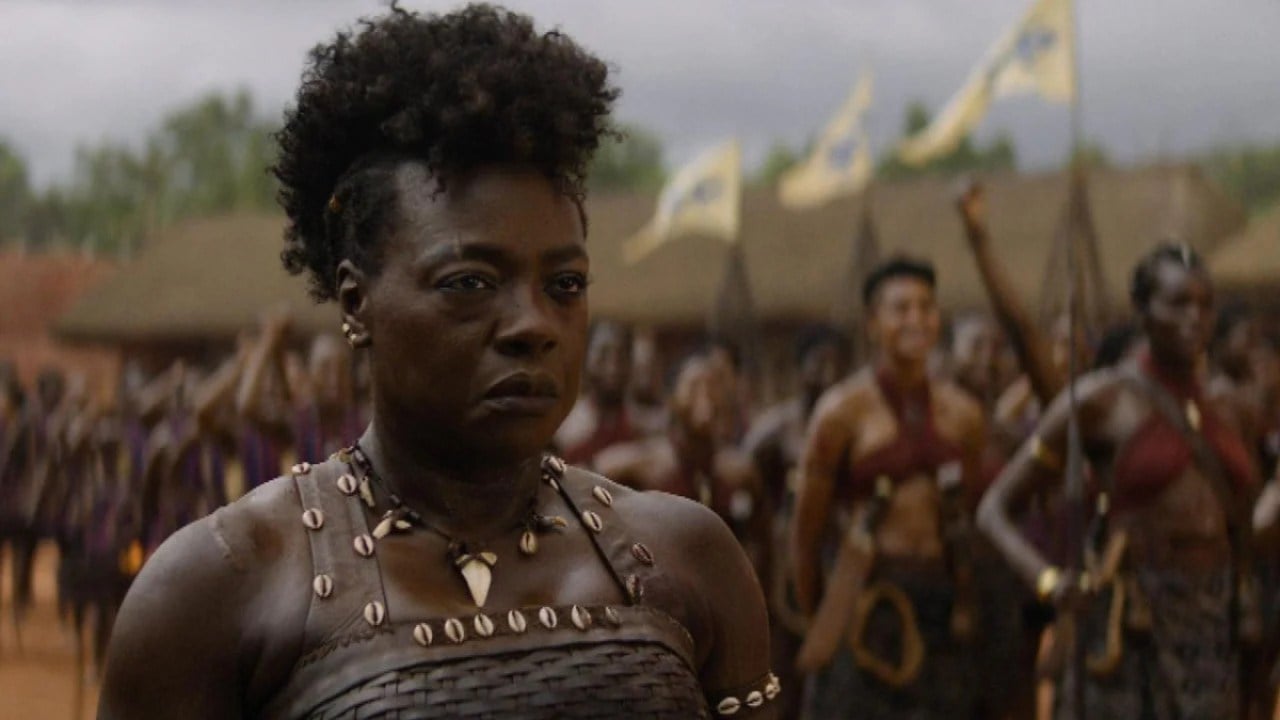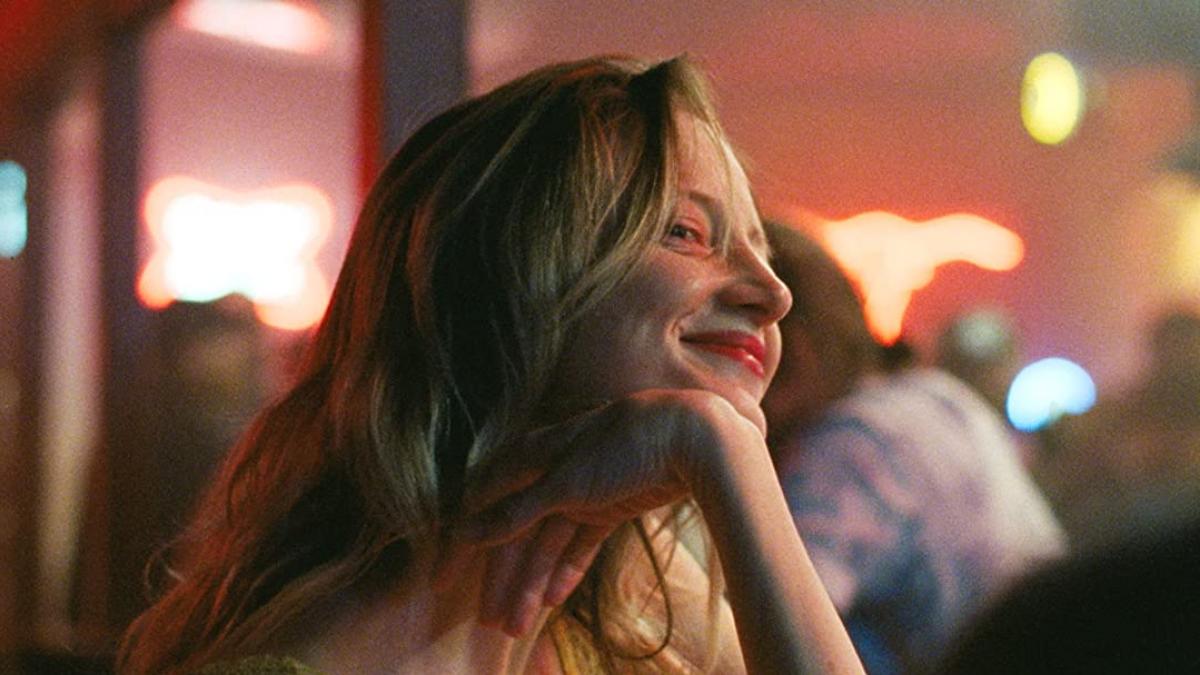Until a couple of weeks ago, most people had never heard of To Leslie. The drama from first-time feature director Michael Morris stars Andrea Riseborough as a single mom in West Texas whose lottery win precedes a personal downfall. To Leslie premiered at the 2022 SXSW film festival and made just over $27,000 worldwide following a very limited release in October. But earlier this month, Riseborough began making headlines amid an awards season campaign bolstered by support from the likes of Cate Blanchett, Gwyneth Paltrow, and Kate Winslet.
The effort paid off, and when the 2023 Oscar nominees were announced, Riseborough’s name was among those listed for Best Actress. Right away, there was backlash over Riseborough’s nomination, which may very well have shut out two Black actors who were also in contention: Viola Davis and Danielle Deadwyler. While Riseborough is certainly deserving of recognition, so are Davis and Deadwyler, and the success of her campaign has become the most recent inflection point in a larger conversation about the ongoing inequity and lack of diversity among Oscar nominees.
Setting the scene
Andrea Riseborough isn’t exactly a household name. (You might recognize her, but your mom definitely doesn’t.) The English actor is best known to general audiences for roles in The Grudge reboot (a movie that barely exists) and Birdman (a movie that unfortunately exists). To cinephiles, Riseborough is a chameleonic talent beloved for her performances in Mandy, Possessor, and Battle of the Sexes. She’s a character actor with an otherworldly ability to inhabit the (fictional) lives of others and a utility player with a remarkable capacity for assimilating into an ensemble—qualities that made Possessor, in which she plays an assassin who commandeers the bodies of her targets through a brain implant, something of a meta-narrative.
In To Leslie, Riseborough gives the sort of nuanced, dynamic performance we’ve come to expect—the kind of performance that might’ve otherwise gotten lost in the awards season cesspool (Independent Spirit Award nomination notwithstanding) had it not been for this makeshift Oscar campaign. Aptly described by Vulture‘s Nate Jones as “Sophie’s Choice for people whose children went to Crossroads,” To Leslie was never going to be an awards contender. (Whether or not it should have been in contention is another conversation.)

(Gareth Cattermole, Getty Images for Walt Disney Studios Motion Pictures UK)
The awards season campaign started the week of January 12 (the first day of Oscar voting) with a seemingly innocuous tweet from Edward Norton praising his Birdman co-star’s performance in To Leslie. Gwyneth Paltrow hailed Riseborough’s performance in an Instagram post following a private screening of the film for her famous friends. Not to be out-Goop’d, Kate Winslet and Amy Adams hosted their own screenings, each followed by a Q&A with Riseborough.
Suddenly, it seemed like every celebrity with a Twitter account was popping off about Andrea Riseborough. THR reported the exhaustive list of famous people tweeting about Riseborough’s performance, including but not limited to: Susan Sarandon, Helen Hunt, Sarah Paulson, Zooey Deschanel, Melanie Lynskey, Mira Sorvino, Constance Zimmer, Rosie O’Donnell, Minnie Driver, Alan Cumming, Daphne Zuniga, Tan France, Jenny McCarthy, Frances Fisher, Rosanna Arquette, Debra Winger, Patricia Clarkson, and Howard Stern.
It may have seemed as though the Little Campaign That Could started overnight, but it began in earnest in the fall: Charlize Theron hosted a screening of To Leslie in November, less than two weeks before Riseborough landed the Spirit Award nomination and about a month before the National Board of Review included the film in its list of the top 10 independent films of the year.
The campaign didn’t raise many eyebrows until someone on Reddit noticed that several tweets used the same phrase when praising To Leslie, calling it “a small film with a giant heart”—the sort of cute phrasing a PR firm might encourage when soliciting social media posts. Getting famous people to tweet about an indie movie that could use some attention is hardly unethical, but the fact that so many of them chose to use the PR’s suggested copy is pretty funny.
And again, it worked. When the 2023 Oscar nominees were revealed on January 24, Andrea Riseborough’s name was announced alongside Michelle Yeoh, Cate Blanchett, Michelle Williams, and Ana de Armas in the Best Actress category. Would that it t’were so simple.
The criticism
You’ll have a hard time finding someone who disagrees with Yeoh’s massively deserved nom for Everything Everywhere All at Once, but the rest of the list—like any best-of list—is up for debate. And this particular list does have some notable omissions.
In the lead-up to this year’s nominations, Viola Davis and Danielle Deadwyler were both in contention for Best Actress for their respective performances in The Woman King and Till. Davis delivers a commanding performance as General Nanisca in Gina Prince-Blythewood’s historical action-drama about the Agojie, a group of female warriors who fiercely protected the kingdom of Dahomey in 19th century West Africa. Deadwyler pulls off an astonishing high-wire act in Till, navigating the horrific pain of Mamie Till-Mobley’s pursuit of justice for the lynching of her 14-year-old son Emmett with exceptional nuance.

(Sony Pictures Releasing)
Though Davis and Deadwyler received nods from many of the major Oscar precursors for their performances, including the Golden Globes, the SAG Awards, and the Critics’ Choice Awards, neither of them secured an Oscar nomination.
Many, including film critic Robert Daniels, expressed frustration with the exclusion of Davis and Deadwyler, either of whom might have received a nom instead of Riseborough:
It isn’t just Riseborough, though: Ana de Armas’ nomination is similarly surprising given the negative response to Blonde, Andrew Dominik’s torturous monument to the victimization and exploitation of Marilyn Monroe. (De Armas’ performance is arguably the best thing about the film, but your reaction to the talking fetus may vary.) Michelle Williams, on the other hand, managed to land a Best Actress nom for a Best Supporting Actress performance in The Fabelmans. Honestly, the most surprising thing about the Williams nod is that more people aren’t yelling about category fraud.
As part of a larger narrative, Riseborough’s awards season arc is a modern symbol of enduring inequities: a white woman surrounded and supported by other white women, who could easily direct some of their energy toward supporting women of color, but they don’t.
The conversation
Ultimately, the problem isn’t with Riseborough. The problem is systemic. Campaigns have long been a fixture of awards season, with studios and agencies shelling out thousands (sometimes millions) of dollars to promote their films and actors. Think of it as political lobbying. Like politics, so much of awards season has to do with how much money and influence you have and who you know.
For example: To Leslie director Michael Morris previously directed episodes of Bloodline (Riseborough appeared in eight episodes) and Better Call Saul, and he’s married to former West Wing star Mary McCormack. Riseborough’s manager is Jason Weinberg, whose client roster includes Jane Fonda and Melissa Leo (who launched a similar but less successful campaign in 2011 for The Fighter).
So what makes Davis and Deadwyler’s awards season run different from Riseborough’s? They’re both well-connected, talented actors with a history of being nominated for and winning precursor awards. They have good managers, and Davis and Riseborough are even repped by the same agency—CAA. The difference is, unfortunately, all too obvious.
Despite recent efforts to diversify its voting body, the Academy’s nominees continue to be mostly white and male. For the second consecutive year, women were shut out of the Best Director category. The nominees for Best Actor are all white (again). And did you know that Michelle Yeoh is the first Asian actress to be nominated for a Best Actress Oscar, like, ever? (Technically, she is, as The Hollywood Reporter put it, “the first person who identifies as Asian” to be nominated, but that’s a whole other Hays Code conversation.)
The Academy believed that increasing the number of women and people of color among its voting body would result in more diversity among nominees. It has and it hasn’t. The scant progress made in recent years is just more evidence of a systemic issue—it’s not just the campaigns and the awards organizations (although these things are not without blame); it’s the entire Hollywood system.
Till director Chinonye Chukwu summed it up in an Instagram post: “We live in a world and work in industries that are so aggressively committed to upholding whiteness and perpetuating an unabashed misogyny towards Black women.”
The fact that this conversation is relevant every year during awards season, almost always spurred by the exclusion of Black women, is outrageous. Equally as clear as the problem is the fact that little is being done about it. The filmmaking industry as a whole remains predominately white and male, making it easy to see why the image of Andrea Riseborough being carried aloft by a herd of mostly white women is such a frustrating (and predictable) emblem of what this system is and what it does.
(featured image: Momentum Pictures)









Published: Jan 25, 2023 03:20 pm